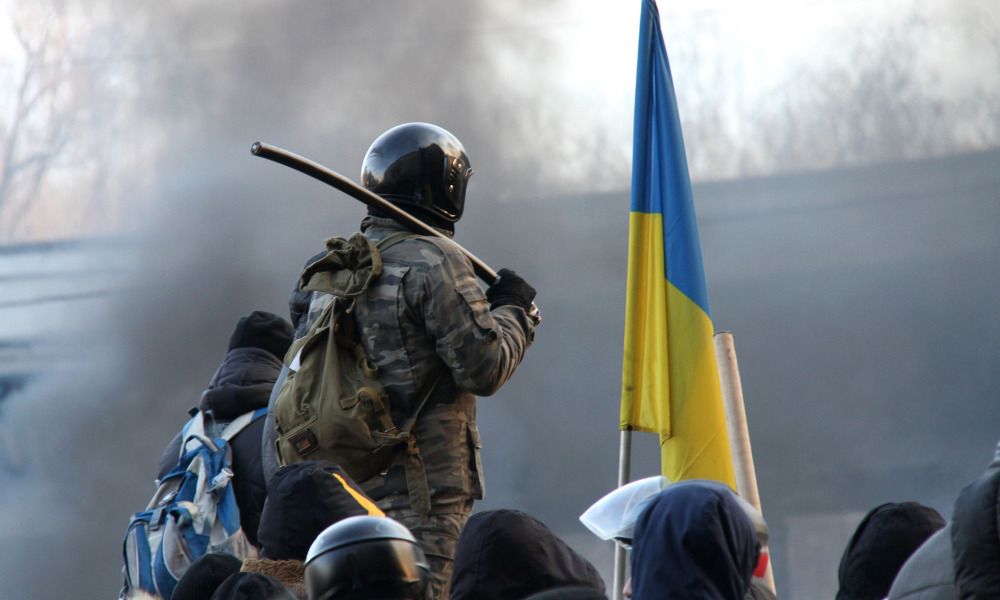
Module 4: Europe’s Security Order: The war in Ukraine and beyond
oiip Academy
Module 4: Europe’s Security Order: The war in Ukraine and beyond
22. January 2026
In this fourth module of our "How to navigate Geopolitical Risks" Executive Education Course series, participants will explore the implications and consequences of the ongoing war in Ukraine on Europe’s security architecture. Based on a classical realist international relations perspective on ‘security dilemmas’ and on recent multidisciplinary research on identity and status, we will investigate the reasons for the collapse of the post-Cold War world order and analyze the conflict in Ukraine as the symptom of a bigger crisis in European security. Using Zbigniew Brzezinski’s approach, the module will focus on today’s ‘global turmoil’ characterized by a high degree of uncertainty, risk, and ontological insecurity and offer a heuristic framework to map the impact of this multidimentional disaster. Considering the ‘geopolitical’ EU as a case study, the module will assess how the Russia-Ukraine war has reshaped trends, shifted strategic orientations, forged new alliances and further weakened multilateralism.
The course will also look beyond the horizon and set the elements of a post-Ukraine war ‘Code of Conduct’ for the 21st century. Using a scenario-based methodology, participants will discuss whether a ‘quick peace’ is possible after a ‘long war’ and what would be the preconditions for a ceasefire in Ukraine. After an interactive discussion moderated by our experts, a ‘toolbox’ for managing distrust, reducing risk and averting escalation in Europe in the foreseeable future will be elaborated together.
Fees per module:
€ 350.- Professionals
€ 150.- Students
Course Objectives
- Harness informed insights about and a comprehensive overview of the historical and cultural causes and latest developments of the war in Ukraine.
- Identify and evaluate the conflict’s main impacts on global trade, supply chains and energy markets, new arms race, resource allocation, and innovative technologies.
- Analyze the perceptions of the world’s main collateral observers of the conflict: the EU, the U.S., peace-brokering big and middle powers (China, Brazil, India), the ‘Global South’.
- Interactively draw a picture of the ‘post-war’ European architecture.
Full-Day Schedule
09:00 – 09:30 | Opening & Orientation
09:30 – 10:45 | What led us to 2022? The war in Ukraine in context
Key Takeaways: Deeper understanding of the history, drivers and background of the conflict, in the broader context of relations and confrontation between Russia and the West. Critical reflection on the military, historical, political, cultural and societal aspects of the Russo-Ukraine War. Question common assumptions about the conflict and its sources. Interpret first lessons of the war in Ukraine from a strategic, tactical, operational, and institutional perspective, including the role of nuclear deterrence, ‘ hybrid warfare’ and disruptive technologies.
Skills Taught: Developing analytical skills and critical perspectives to observe an open conflict. Acquiring concepts for future protracted warfare, supporting decision-making in war and post-conflict contexts.
10:45 – 11:00 | Coffee Break
11:00 – 12:15 | How Russia’s war in Ukraine has changed Europe
Key Takeaways: How the war in Ukraine has transformed the EU’s Common Foreign and Security Policy. Trump.2 ‘after-shock’ and the war in Ukraine as catalysts for European strategic autonomy. Clear vision of the challenges and opportunities of the current Rearm Europe process. New alliances and ‘coalitions of the willing’ in and around Europe. Transition from a Euro-centric, Western-dominated world to a much more pluralistic and decentered security architecture, featuring also new powers in Asia and the ‘Global South’.
Skills Taught: Acquiring an in-depth comprehension of the evolving European (and global) strategic landscape. Informing European policies and strategies regarding security and relations with Russia (including sanctions). Evaluating EU´s potential to strengthen its position in the global arena amidst challenges from authoritarianism.
12:15 – 13:15 | Lunch
13:15 – 14:30 | Towards the end of the war or on the road to escalation?
Key Takeaways: Interactively and collaboratively building and defending scenarios for the end of the war, including major institutional actors (NATO, EU, OSCE) and ‘black swans’ and wildcards events (role game). Assessing how Europeans can change the course of the war in Ukraine. Understanding the risk of escalation and miscalculations and how to avert them. Based on precedents and historical comparisons, examine what a ceasefire in Ukraine would look like and which prospects and preconditions it would require.
Skills Taught: Scenario-thinking, planning and reviewing. Applying geopolitical foresight and risk monitoring techniques to near-term anticipation. Preparing for comprehensive peace negotiations and post-conflict rehabilitation.
14:30 – 14:45 | Coffee Break
14:45 – 16:00 | The ‘day after’: Shaping Europe’s security future
Key Takeaways: Brainstorming about the requirements to accomplish a Euro-Atlantic and Eurasian security community, taking due consideration of the mistakes made before 2022. Designing security guarantees for Ukraine. Reflecting together about the long-term relationship that could be crafted between Moscow and the West.
Skills Taught: Challenging conventional mental schemes in the study of European security. Translating geopolitical awareness into actionable strategy. Provide with policy recommendations to support decision-making.
16:00 – 17:00 | Wrap-up session & priority setting
Materials Provided
- Executive Handbook including major relevant articles, policy analyses, graphs and maps.
- Scenarios elaborated by the group and summarized in ‘real time’ during the module.
- REFLECTIONS – oiip Magazine

